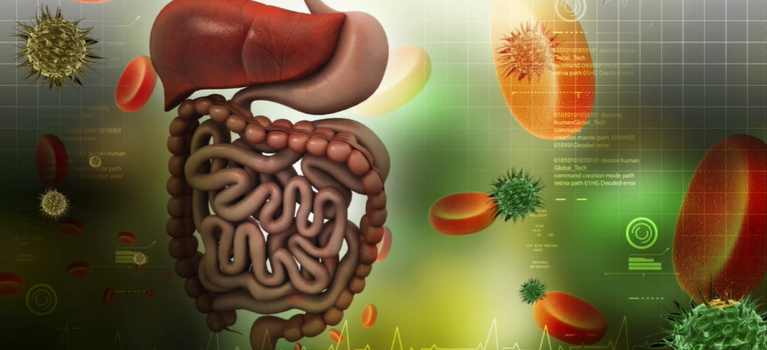Decembeard
This December, Bowel Cancer uk is asking you to ditch the razor and grow a beard to support everyone affected by bowel cancer.

Tashes for testicles, beards for bowels - Decembeard sports a month of manliness where men help promote the support and awareness of bowel cancer by growing beards during December. Whether you are merging your mo from Movember or starting clean shaven, growing the longest, bushiest beard or keeping it trim and manscaping something epic; the aim of the game is for you to get your beard some attention so you can help educate people on why you are growing one.
What is bowel cancer?
Bowel cancer is also called colorectal cancer. It affects the large bowel, which is made up of the colon and rectum. Bowel cancer is the third most common cause of death in the world, affecting both men and women. Every year just over 40,000 people are diagnosed and more than 16,000 people die of the disease. If caught early enough bowel cancer can be successfully treated. For more information visit Bowel Cancer UK or don't be afraid to talk to your GP. It could save your life.
What Causes Bowel Cancer?
It is not always known what causes bowel cancer. It can be caused by genetic changes, lifestyle, and environmental factors. These include:
• inherited genetic risk and family history, especially if there are specific genetic syndromes that cause bowel cancer at a young age Your risk of bowel cancer is increased if you have a first degree relative diagnosed with bowel cancer. A first degree relative is a parent, brother or sister, son or daughter. The risk is increased further if you have more than one relative diagnosed with bowel cancer. Or you have a first degree relative diagnosed at a young age, for example, under the age of 45 years old.
• inflammatory bowel disease such as Crohn’s disease or ulcerative colitis. Ulcerative colitis and Crohn's disease are chronic bowel diseases causing inflammation in the bowel. Having either of these diseases for many years increases your risk of bowel cancer.
• having bowel polyps Growths in the bowel, called polyps are not cancerous. Certain types of polyps called adenomas can develop into cancer over a long period of time. In fact, most bowel cancers develop from an adenoma. Your risk of developing cancer depends on how many polyps you have, and how large they are. Adenomas are quite common. Around a third of the population will have at least one polyp by age 60. But only a small fraction of adenomas develop into cancer and it takes years to happen.
• high red meat consumption, especially processed meats such as bacon, ham, salami, sausages. Many studies have shown that eating lots of red and processed meat increases the risk of bowel cancer. It is estimated that around 13 out of 100 bowel cancer cases (around 13%) in the UK are linked to eating these meats. Processed meat is any meat that has been treated to preserve it and/or add flavour - for example, bacon, salami, sausages, canned meat or chicken nuggets. And a portion is about 2 sausages or 3 slices of ham.
• being overweight or obese. Obesity is a cause of bowel cancer. It is estimated that 11 out of 100 bowel cancers (11%) in the UK are linked to being overweight or obese. Obesity means being very overweight with a body mass index (BMI) of 30 or higher. And being overweight is a BMI of between 25 and 30. The risk of bowel cancer is higher in people who are obese compared to those who have a healthy BMI.
• high alcohol consumption, especially more than two standard drinks per day. Alcohol increases the risk of bowel cancer. It has been estimated that around 6 out of 100 bowel cancers (around 6%) in the UK are linked to drinking alcohol.
• smoking tobacco. 7 out of 100 bowel cancers (7%) in the UK are linked to smoking. The risk increases with the number of cigarettes smoked a day. It is never too late to stop smoking but the sooner you stop the better.
• having a previous diagnosis of bowel cancer. You have an increased risk of developing another bowel cancer if you have already had a bowel cancer in the past. Your specialist will talk to you about how often you may need screening. You might have a slightly increased risk of getting bowel cancer if you have had another type of cancer in the past. This might be due to genetic changes or an effect of the treatment for the first cancer. In some cases, it may be due to shared risk factors such as smoking or being overweight.
Possible symptoms of bowel cancer
The symptoms of bowel (colorectal) cancer can include:
• bleeding from the back passage (rectum) or blood in your poo
• a change in your normal bowel habit, such as looser poo, pooing more often or constipation
• a lump that your doctor can feel in your back passage or tummy (abdomen), more commonly on the right side
• a feeling of needing to strain in your back passage (as if you need to poo), even after opening your bowels
• losing weight • pain in your abdomen or back passage
• tiredness and breathlessness caused by a lower than normal level of red blood cells (anaemia)
Sometimes cancer can block the bowel. This is called a bowel obstruction. The symptoms include:
• cramping pains in the abdomen
• feeling bloated
• constipation and being unable to pass wind
• being sick
A bowel obstruction is an emergency. You should see your doctor quickly or go to A&E at your nearest hospital if you think you have a bowel obstruction. It's important to know that most people with these symptoms don't have bowel cancer.
Other health problems can cause similar symptoms. Knowing the symptoms and acting on them as quickly as possible could mean that if you do have bowel cancer, it may be diagnosed earlier when it's much easier to treat. People whose cancer is diagnosed at an early stage have a much higher chance of successful treatment than those whose cancer has become more widespread. Keeping track of your symptoms in our diary can help you describe them to your doctor, as it can be tricky to remember or explain what you've been experiencing during a short appointment. This will give a good indication to your doctor whether you need further tests. Don't be embarrassed and don't ignore any symptoms. Doctors are used to seeing lots of people with bowel problems.
Main treatments for bowel cancer and their side effects
The treatment you'll have for bowel cancer depends on:
• the size of the cancer
• if the cancer is in your colon or rectum, or both
• if it has spread to other parts of your body
• if the cancer has certain genetic changes
• your age and general health
• You may be offered a combination of treatments including surgery, chemotherapy, radiotherapy, and targeted medicines.
Treatment for bowel cancer and even the cancer itself, can cause side effects. The types and severity of any side effects you may experience will depend on the type of treatment you have and may vary from person to person.
Most side effects are temporary and can be prevented, reduced or managed.
Some of the side effects you may experience include:
• fatigue
• nausea and vomiting
• hair loss
• being more prone to infections
• changes to bowel habits such as diarrhoea, constipation, incontinence or small amounts of bleeding from the anus
• mouth problems
• changes in appetite, taste and smell
• high blood pressure
• changes to memory and thinking
• changes to fertility and sexual function.
How Reflexology Can Help?
Reflexology for cancer may be able to help with a range of ailments, including the reduction of stress, tension and anxiety, stimulation of the lymphatic system, increasing circulation, increased energy and pain management. Hospices are increasingly using complementary therapists, particularly reflexologists to offer help and support to their patients.
Several forward thinking hospitals also offer reflexology as part of the oncology journey package. While reflexology cannot cure cancer or any other medical condition, it may provide some benefits to cancer patients. However, it's important to note that reflexology should be used as a supportive therapy alongside conventional medical treatment, and you should consult with your healthcare team before starting any complementary therapy.
Here are some ways in which reflexology may help cancer patients:
• Relaxation and stress reduction: Reflexology sessions can promote deep relaxation and help reduce stress and anxiety, which are common emotional challenges faced by cancer patients. It may induce a state of calm and improve overall well-being.
• Pain management: Reflexology may help alleviate pain and discomfort associated with cancer and its treatments. By stimulating certain reflex points, it may trigger the release of endorphins, which are natural pain-relieving substances produced by the body.
• Improved sleep: Cancer and its treatments can disrupt sleep patterns. Reflexology's relaxation benefits may help improve the quality of sleep, allowing patients to rest and recover more effectively.
• Enhanced circulation: Reflexology techniques aim to improve blood and lymphatic circulation. This can have a positive impact on overall health and may support the body's natural healing processes.
• Increased energy levels: Cancer treatments can often lead to fatigue and decreased energy levels. Reflexology may help to restore energy and vitality by promoting a sense of balance and revitalization.
• Emotional support: Cancer can be emotionally challenging. Reflexology sessions provide an opportunity for patients to receive nurturing touch and emotional support from a trained practitioner, which can be comforting and empowering.
There have been several studies undertaken which show it does have benefits in the reduction of pain and swelling in affected areas. As it’s a non-invasive form of therapy, it’s an alternative to traditional massage for those who prefer to avoid full-body touch. And as there is no undressing or repositioning required, it can be ideal for those who are very sick, who can’t be moved during treatment or touched in certain places. It could also help to reduce nausea caused by chemotherapy or radiotherapy.
Overall, reflexology is thought to be very helpful for anybody on a journey through cancer. It can help to improve a person’s quality of life, whilst creating and sustaining an overall sense of wellbeing, which is pivotal for anybody on a healing journey.
If you would like to know more about how reflexology could help you on your journey through cancer, please do not hesitate to get in touch with Helen or Deb at info@reflexologylincolnshire.co.uk
#ReflexologyLincolnshire #Decembeard #BowelCancerUk












